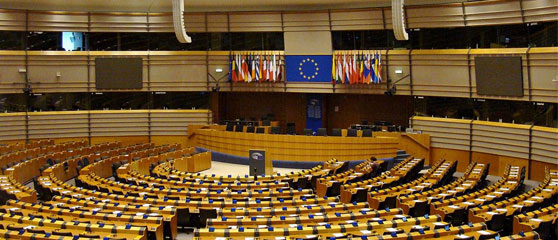The European Commission (EC) has proposed a new counter-narcotic plan for the European Union, which includes several seemingly progressive changes.
Among the new proposals is the examining of drug trafficking’s relationship with human trafficking, the implementation of evidence-based harm reduction measures, and the consideration of human rights when funding foreign regimes’ counter-narcotic activity.
The proposed EU Action Plan on Drugs 2017-2020 was published on March 15, and – if accepted for implementation – will provide the basis of the second half of an eight-year multinational endeavour, the EU Drugs Strategy for 2013-2030 (“the Strategy”).
There are five overarching objectives that the Strategy aims to achieve. These are, broadly: reducing demand for drugs; reducing the supply of drugs; improving coordination among different actors – including the EC, member states, and civil society; cooperating internationally – particularly with drug-producing states; and furthering research, particularly into drug trafficking's ties with other types of crime.
The text of the proposed 2017-2020 Plan is largely the same as its predecessor – the EU Action Plan on Drugs 2013-2016 – but includes several key amendments or additions.
In tackling demand, the proposed Plan offers a renewed focus on groups that the EC perceives to be vulnerable.
The Plan outlines that member states should be more cooperative, exchanging best practices between each other relating to "targeting children and young people in [drug use] prevention actions".
It insists that officials take into consideration the vulnerability of migrants and asylum seekers, hundreds of thousands of whom have entered the EU since 2013, and are particularly at risk of exposure to drugs.
The proposed Plan also includes a call for renewed investigation into drug trafficking groups' relationships with "terrorist groups" and "migrant smuggling criminal rings". While research in this area is undoubtedly important, there is no evidence to suggest that drug trafficking and human trafficking are significantly intertwined. Purporting a link between the two could be used as an excuse by authorities for implementing harsh measures on individuals involved with the drug trade.
Another addition that may be welcomed by health experts is an increased use of the qualifier "evidence-based". While the term was included in the 2013-2016 Plan, it is more prevalent in the newly-proposed Plan; it has been inserted into several sentences which are otherwise unchanged.
For example, calls to improve effectiveness of prevention measures have been amended to demand "effectiveness of evidence-based prevention measures".
It is unclear whether this is a rhetorical sleight of hand aimed at appeasing critics, or perhaps suggestive of a gradual progressive shift in EU attitudes to drug use.

A segment of the 2017-2020 Plan; words in bold signify additions that were not in the 2013-2016 Plan
The proposed Plan also calls for a scale up of "access to harm reduction services [including] needle and syringe exchange programmes (NSPs), opioid substitution treatment (OST), [and] take-home naloxone programmes".
Neither NSPs, nor OST, were mentioned in the 2013-16 Plan.
The support for take-home naloxone – a life-saving drug that can reverse opioid overdoses – is particularly important, as drug-related deaths are on the rise in numerous EU countries. The European Monitoring Centre for Drugs and Drug Addiction (EMCDDA) reported last year that the number of deaths is increasing in Sweden, Lithuania, and Ireland. In England and Wales, the most recently reported number of annual drug-related deaths is the highest since records began.
In an unprecedented step, the proposed Plan calls for member states to incorporate “rule-of-law and international human rights standards and principles in drug-related law enforcement measures”. This is particularly important as EU member states, and the body as a whole, has attracted controversy for funding repressive drug policy measures abroad.
For example, the EU has funded a counter-narcotic programme in Iran, which executes hundreds of people for drug offences every year.
The proposed EU Action Plan on Drugs 2017-2020 offers considerable progressive evidence-based and human rights-oriented improvements to the previous Plan. However, it needs to be evaluated and approved by the European Parliament and the European Council before it can be implemented.


